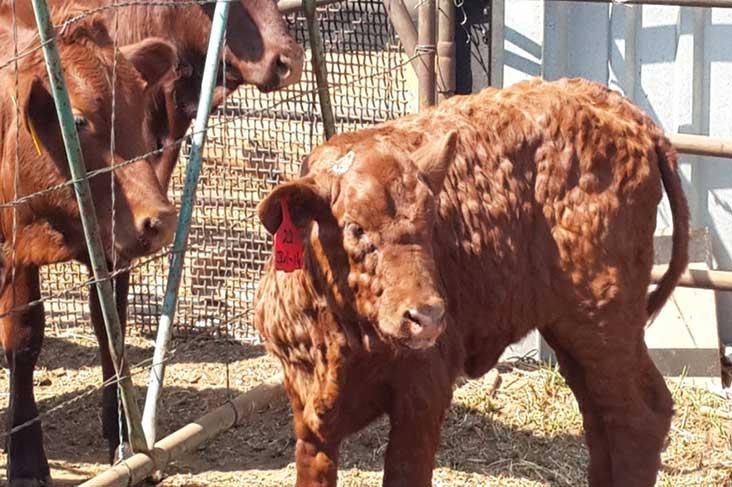The Pirbright Institute’s Dr Pip Beard has been awarded funding to study lumpy skin disease (LSD), a severe viral disease of cattle which is found throughout Africa and the Middle East. Little is known about the LSD virus, so the award will be used to answer fundamental questions about the mechanisms it uses to cause disease.
In 2015-2016 an epidemic of LSD occurred in southeast Europe and the Caucasus, resulting in the slaughter of thousands of cattle and significant economic losses for affected regions through loss of trade and the cost of control and eradication programmes. The expansion of LSD into previously unaffected regions of the world has triggered a call for more research into the virus.
This funding, awarded by the Biotechnology and Biological Sciences Research Council (BBSRC), will enable Pirbright scientists to study the genetic material of the LSD virus and identify key genes involved in causing disease. Using the most modern gene editing technology, the team plan to create new methods to mutate the viral genome with far higher precision than previously achieved. The mutated LSDV strains will then be studied in order to understand the fundamental interactions between LSDV and cattle that lead to disease.
Dr Pip Beard, leader of the Large DNA Viruses group at Pirbright, said: “As technology moves on so too can the techniques we use to study these emerging viruses. It is extremely exciting to have been awarded this grant to discover which genes enable LSDV to cause disease. We will be leading the way for future researchers and enabling the development of better control and eradication measures to prevent further spread of this disease.”
*Image courtesy of Dr Neil Fourie.
